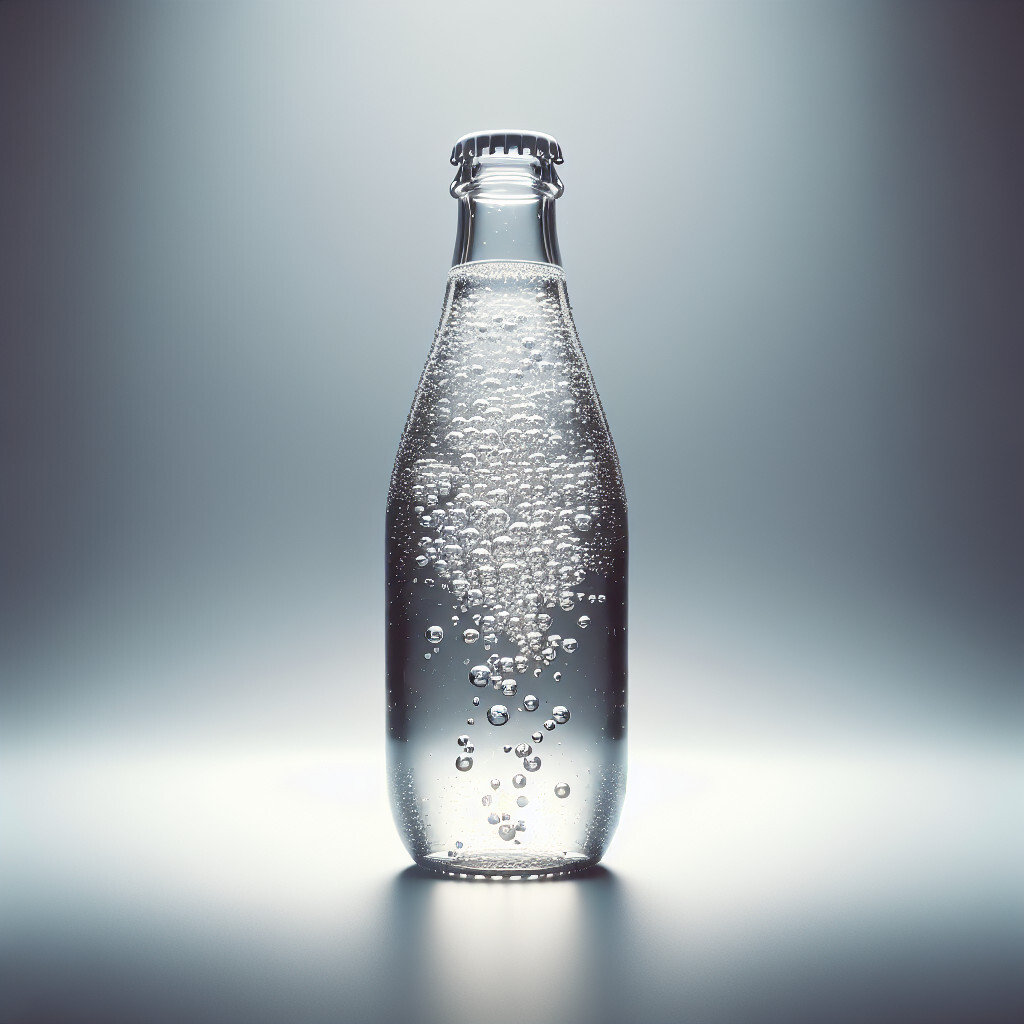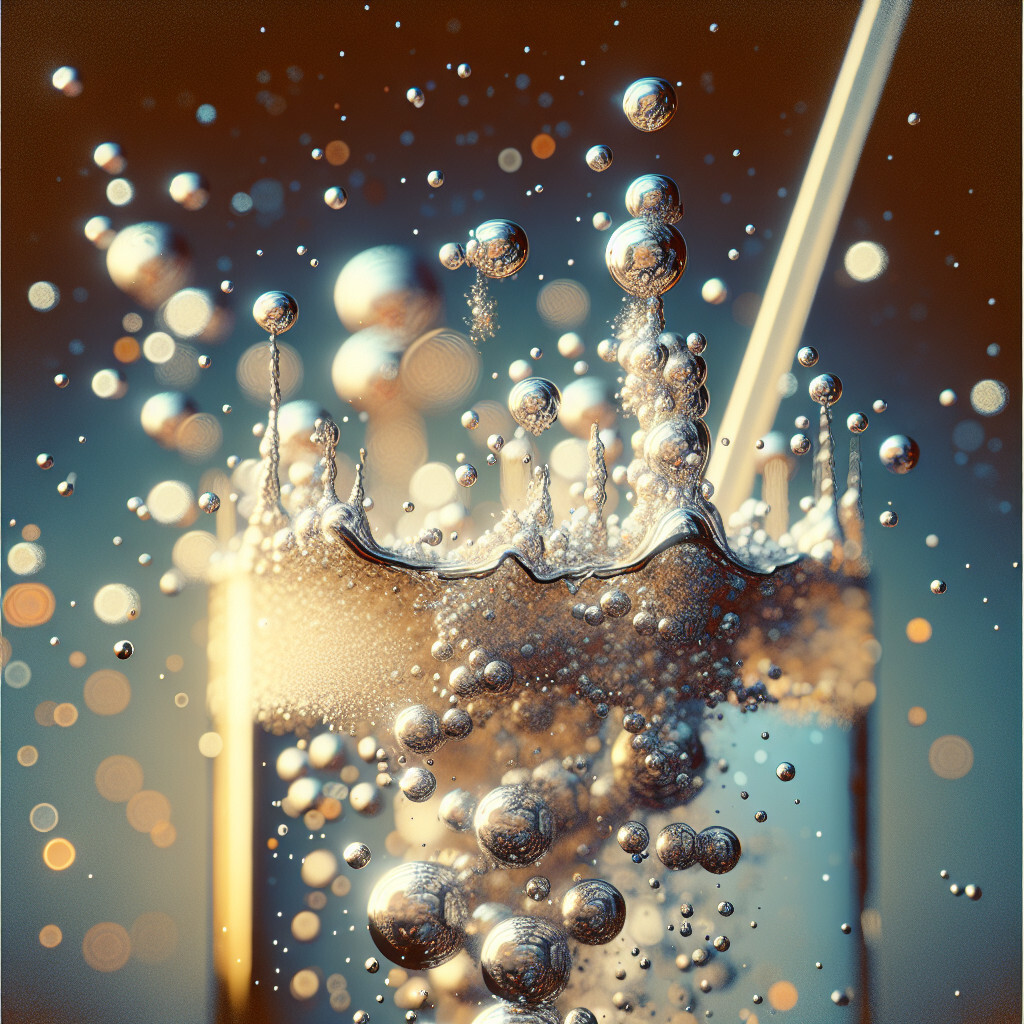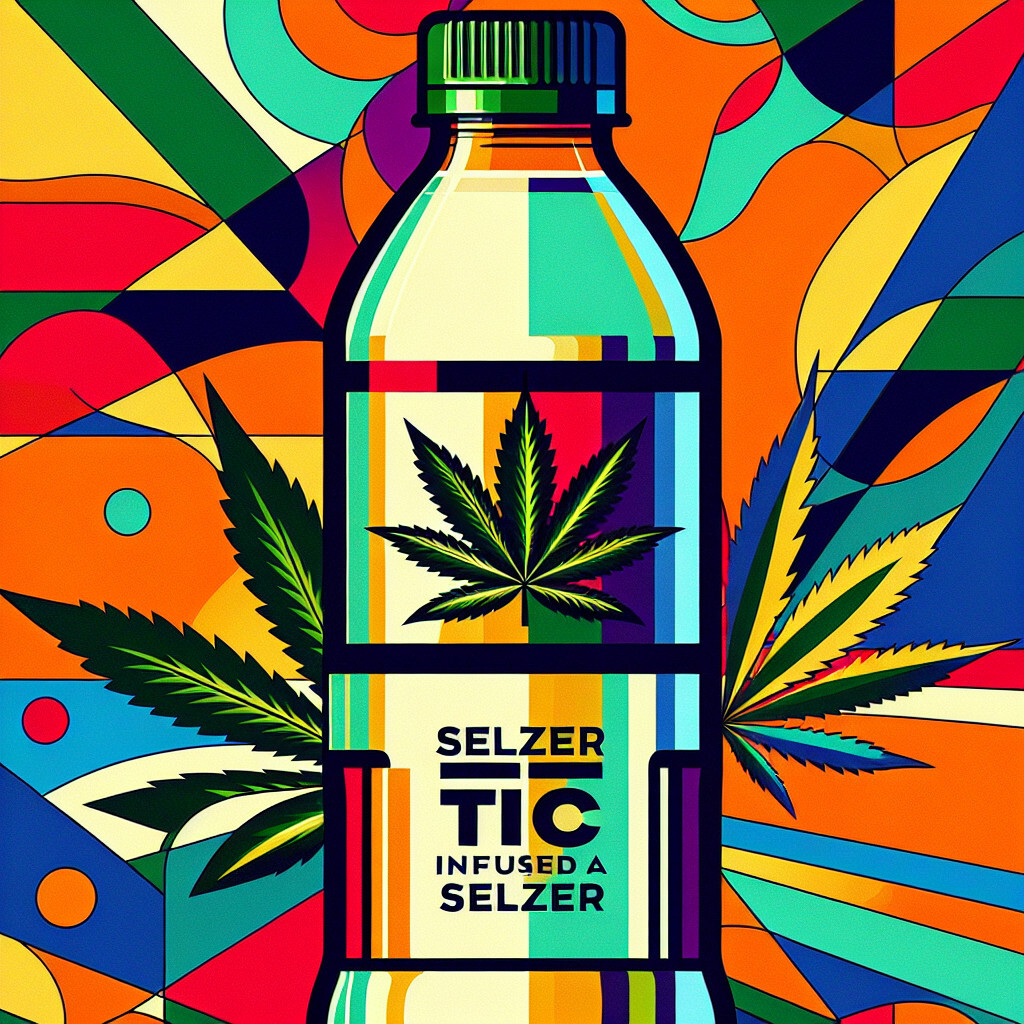-
Table of Contents
“Seltzer Water: Refreshingly Pure, Perfectly Safe to Drink!”
Introduction

Seltzer water, also known as sparkling water, is a carbonated water that is often consumed as a refreshing beverage. It is considered safe to drink and can be a good alternative to sugary soft drinks. It contains no added sugars or artificial sweeteners, making it a healthier choice for hydration. However, it’s important to note that some flavored varieties may contain added sugars or natural flavors.
Health Benefits of Drinking Seltzer Water
Seltzer water, also known as sparkling water, has gained significant popularity in recent years. Its refreshing taste and effervescence make it an appealing alternative to still water, particularly for those who are trying to reduce their intake of sugary drinks. However, many people wonder if seltzer water is okay to drink regularly. The answer, according to health experts, is a resounding yes. In fact, seltzer water not only provides hydration but also offers several health benefits.
Firstly, seltzer water is an excellent source of hydration. Like regular water, it is calorie-free and sugar-free, making it a healthy choice for maintaining hydration throughout the day. Staying hydrated is crucial for various bodily functions, including regulating body temperature, aiding digestion, and maintaining healthy skin. Therefore, incorporating seltzer water into your daily routine can contribute to your overall hydration needs.
Moreover, seltzer water can be a helpful tool in weight management. Since it is free of calories and sugar, it can be a satisfying substitute for high-calorie, sugary beverages like soda. The carbonation in seltzer water can also create a feeling of fullness, which may help curb overeating. Thus, for those looking to maintain or lose weight, seltzer water can be a beneficial addition to a balanced diet.
In addition to hydration and weight management, seltzer water may also aid in digestion. The carbonation in seltzer water can stimulate the production of stomach acid, which can help break down food more efficiently. This can potentially alleviate symptoms of indigestion and improve overall digestive health. Furthermore, some studies suggest that the carbonation in seltzer water may help relieve constipation by promoting bowel movement.
Despite these benefits, it’s important to note that not all seltzer waters are created equal. Some brands may add artificial sweeteners, flavors, or other additives that could negate the health benefits. Therefore, when choosing a seltzer water, it’s best to opt for varieties that are free of added sugars and artificial ingredients.
Additionally, while seltzer water is generally safe to drink regularly, excessive consumption may lead to potential drawbacks. For instance, the carbonation in seltzer water can cause bloating and gas in some individuals. Also, some research suggests that the acidity in carbonated beverages could potentially harm tooth enamel over time. However, it’s worth noting that seltzer water is significantly less acidic than other carbonated beverages like soda, and moderate consumption is unlikely to cause significant dental issues.
In conclusion, seltzer water is not only okay to drink, but it also offers several health benefits. It can contribute to hydration, aid in weight management, and potentially improve digestion. However, it’s essential to choose seltzer water without added sugars or artificial ingredients and consume it in moderation to avoid potential drawbacks. As with any dietary choice, it’s always best to consult with a healthcare professional to determine what’s best for your individual health needs.
Is Seltzer Water a Safe Alternative to Regular Water?
Seltzer water, also known as sparkling water, has gained significant popularity in recent years. Its effervescence and refreshing taste make it an appealing alternative to regular water. However, many people often wonder if seltzer water is safe to drink regularly. This article aims to address this concern by examining the health implications of seltzer water.
Seltzer water is essentially water that has been carbonated, meaning it has been infused with carbon dioxide gas under pressure. This process gives the water its characteristic bubbles and fizzy sensation. It’s important to note that seltzer water is different from club soda, tonic water, or flavored sparkling water, which may contain added sugars, sodium, or artificial flavors. Pure seltzer water, on the other hand, contains no added ingredients, making it a calorie-free and sugar-free beverage.
One of the primary concerns about seltzer water is its potential impact on dental health. The carbonation process makes seltzer water slightly more acidic than regular water, which has led to concerns about tooth enamel erosion. However, research suggests that the acidity of seltzer water is not likely to harm dental health if consumed in moderation. A study published in the Journal of Oral Rehabilitation found that while sparkling water is slightly more erosive than regular water, it’s about 100 times less erosive than soft drinks. Therefore, as long as you’re not substituting all your regular water intake with seltzer water, your dental health should not be at risk.
Another concern is the effect of seltzer water on bone health. Some people worry that the carbonation in seltzer water could leach calcium from the bones, leading to osteoporosis. However, this myth has been debunked by several studies. A study published in the American Journal of Clinical Nutrition found no significant link between carbonated beverages and bone mineral density. In fact, the study suggested that the negative association between carbonated beverages and bone health is more likely due to people drinking less milk, not because of the carbonation itself.
In terms of digestion, seltzer water may actually have some benefits. The carbonation can help to alleviate symptoms of indigestion and constipation. A study published in the European Journal of Gastroenterology and Hepatology found that people who drank carbonated water had significantly reduced symptoms of indigestion and constipation compared to those who drank regular water.
In conclusion, seltzer water is a safe alternative to regular water when consumed in moderation. It’s a calorie-free, sugar-free beverage that can add a bit of variety to your hydration routine. While it’s slightly more acidic than regular water, it’s not likely to harm your dental health if you’re not consuming it excessively. It doesn’t negatively affect bone health, and it may even have some digestive benefits. However, it’s important to remember that seltzer water should not replace all your regular water intake. Regular water is still the best way to stay hydrated, and seltzer water should be seen as a fun and refreshing addition to your hydration routine, not a substitute.
Debunking Myths: The Truth about Drinking Seltzer Water
Seltzer water, also known as sparkling water, has been a subject of debate for quite some time. Many people enjoy its refreshing taste and effervescence, but there are also those who question its safety and health benefits. This article aims to debunk some of the myths surrounding seltzer water and shed light on the truth about its consumption.
One of the most common misconceptions about seltzer water is that it can lead to osteoporosis. This belief stems from the fact that carbonated beverages, particularly colas, have been linked to lower bone mineral density. However, it’s important to note that seltzer water is not the same as these other carbonated drinks. Unlike colas, seltzer water does not contain phosphoric acid, which is the ingredient believed to leach calcium from the bones. Therefore, drinking seltzer water should not increase your risk of osteoporosis.
Another myth that often circulates about seltzer water is that it can cause tooth decay. While it’s true that the carbonation in seltzer water makes it slightly more acidic than regular water, it’s not nearly acidic enough to harm your teeth. In fact, a study published in the Journal of Oral Rehabilitation found that the erosive potential of seltzer water is negligible compared to other beverages like soda and fruit juice. So, while it’s always a good idea to maintain proper oral hygiene, drinking seltzer water should not contribute to tooth decay.
A third myth about seltzer water is that it can lead to weight gain. This misconception likely arises from the association between carbonated beverages and obesity. However, unlike sugary sodas, seltzer water is calorie-free and sugar-free, making it a healthier alternative. In fact, some research suggests that drinking seltzer water can actually help with weight loss by promoting feelings of fullness.
Despite these myths, it’s important to remember that not all seltzer waters are created equal. Some brands may add sodium, artificial sweeteners, or other additives to their products. Therefore, it’s always a good idea to read the label before purchasing. Opt for seltzer water that is free of added sugars and sodium for the healthiest choice.
In conclusion, seltzer water is not only safe to drink, but it can also be a healthy addition to your diet. It provides a refreshing alternative to plain water and can help you stay hydrated. Moreover, it’s a calorie-free and sugar-free beverage that can aid in weight management. However, as with any food or drink, moderation is key. While seltzer water is not harmful, it should not replace regular water entirely in your diet.
So, the next time you reach for a can of seltzer water, you can do so with the knowledge that it’s a safe and healthy choice. Just remember to choose a brand that is free of added sugars and sodium, and enjoy the bubbly refreshment without the worry.
Seltzer Water: A Healthy Hydration Choice or Not?
Seltzer water, also known as sparkling water, has gained significant popularity in recent years. Its refreshing fizz and variety of flavors make it an appealing alternative to plain water and sugary soft drinks. However, many people wonder if seltzer water is a healthy choice for hydration. This article aims to address this concern by examining the potential health implications of seltzer water.
Seltzer water is essentially water that has been carbonated, meaning it has been infused with carbon dioxide gas under pressure. This process gives the water its characteristic bubbles and fizz. Some brands of seltzer water also add natural flavors or minerals for taste, but true seltzer water does not contain any added sugars, sodium, or artificial sweeteners, making it a calorie-free and sugar-free beverage.
From a hydration perspective, seltzer water is just as effective as regular water. Both types of water provide the body with the necessary fluids it needs to function properly. Therefore, if you enjoy the taste and sensation of seltzer water, it can be a good way to help meet your daily hydration needs.
However, some people have raised concerns about the potential negative effects of seltzer water on dental health. The carbonation process creates carbonic acid, which can lead to a slightly lower pH level in seltzer water compared to regular water. This has led to speculation that seltzer water could be harmful to tooth enamel. However, most research suggests that the effect of seltzer water on dental health is minimal, especially when compared to the damage caused by sugary drinks and fruit juices. Drinking seltzer water in moderation and maintaining good oral hygiene practices should mitigate any potential risks.
Another concern often raised is the potential impact of seltzer water on bone health. Some studies have suggested a link between carbonated beverages and decreased bone density. However, these studies typically involve soft drinks, which contain phosphoric acid, a compound not found in seltzer water. Therefore, the evidence does not support a link between seltzer water and negative effects on bone health.
In terms of digestive health, seltzer water may actually have some benefits. The carbonation can help to stimulate the nerves responsible for swallowing, which can be beneficial for people with certain digestive disorders. Additionally, some people find that seltzer water can help to alleviate symptoms of indigestion and heartburn.
In conclusion, seltzer water appears to be a healthy choice for hydration. It is calorie-free, sugar-free, and can help to meet daily fluid intake needs. While there are some concerns about its potential effects on dental health, these risks are likely minimal, especially when compared to sugary drinks. There is no evidence to suggest that seltzer water negatively impacts bone health, and it may even have some benefits for digestive health. As with any beverage, moderation is key. If you enjoy seltzer water, feel free to include it as part of a balanced diet and healthy lifestyle.
Q&A
1. Question: Is seltzer water safe to drink?
Answer: Yes, seltzer water is safe to drink.
2. Question: Can drinking seltzer water lead to dehydration?
Answer: No, seltzer water can actually help keep you hydrated.
3. Question: Does seltzer water have any negative effects on bone health?
Answer: No, there is no scientific evidence to suggest that seltzer water negatively affects bone health.
4. Question: Can seltzer water cause tooth decay?
Answer: While seltzer water is more acidic than regular water, it is not as acidic as other beverages like soda and is not likely to cause tooth decay. However, flavored or sweetened seltzers can potentially contribute to tooth decay.
Conclusion
In conclusion, seltzer water is safe to drink. It is simply water with added carbonation and sometimes flavorings. However, it’s important to note that flavored or sweetened versions may contain added sugars or artificial ingredients.






